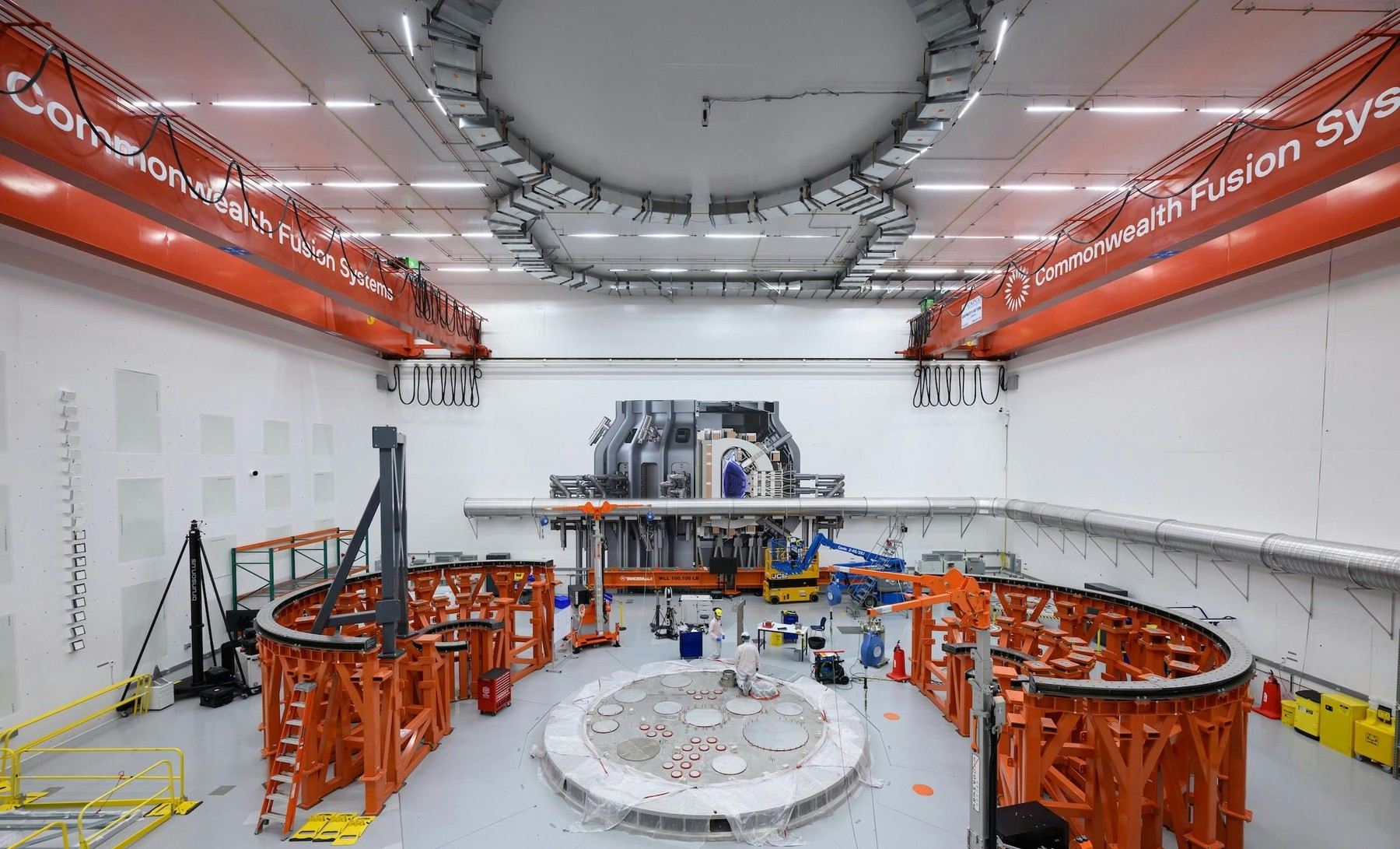Climate Insider Brief:
- Google has achieved 64% carbon-free energy across all its data centres and offices, showing substantial progress toward its goal of net-zero emissions by 2030.
- The report highlights challenges such as the need for systemic changes, evolving standards and regulations, and the complexities of decarbonizing diverse industries and regions.
- Google is at the forefront of developing climate tech solutions and has partnered with companies like Charm Industrial, Lithos Carbon, and CarbonCapture to advance carbon removal efforts.
Google has just released its 2024 Environmental Report which highlights key developments, achievements, and challenges the tech-giant faces as it pursues its ambitious environmental goals.
To help, the Climate Insider has provided a deep dive into this report to detail key insights, investments, actions, and emerging opportunities for the climate-tech landscape.
Achieving Carbon-Free Energy
One notable highlight of the report is Google’s achievement of 64% carbon-free energy across all its data centres and offices, with ten grid regions reaching at least 90% carbon-free energy. This marks a substantial increase from previous years and shows the company’s dedication to reducing its carbon footprint. The 64% figure represents progress toward Google’s goal of running on 24/7 carbon-free energy across all its operations by 2030.

However, despite maintaining the 64% carbon-free energy level from 2022 to 2023, Google’s carbon emissions increased by 13% in 2023. This underscores the challenge of reducing emissions while the company grows and increases its energy demands, particularly due to AI technologies. By integrating renewable energy sources and optimising energy use, Google continues to lead the way in creating a more sustainable future.
Progress Towards Net-Zero Emissions
Google continues to make strides toward its goal of achieving net-zero emissions across all operations and its value chain by 2030. The report details the company’s ongoing efforts to reduce greenhouse gas emissions and enhance sustainability practices. However, it also acknowledges several challenges. This includes:
Systemic Changes: Transitioning to a net-zero future requires stronger government policies, partnerships, new technologies, and structural changes to support operations and the value chain. Effective policy frameworks and collaborative efforts are essential to drive large-scale transitions across industries .
Evolving Standards and Regulations: The necessity of faster reform and greater harmonisation of climate-related standards and regulations is emphasised. Streamlined and consistent standards would facilitate corporate decision-making, especially for long-term emissions reduction strategies.
Regional and Industrial Decarbonization: Global operations and value chains spanning diverse industries and regions present unique decarbonization challenges, particularly in hard-to-abate sectors and carbon-intensive geographies like the Asia-Pacific region. These factors make it challenging to uniformly apply decarbonization efforts across all areas of operation .
Water Stewardship and Replenishment
In its pursuit of water sustainability, Google has supported 74 water stewardship projects across 46 watersheds, replenishing an estimated one billion gallons of water. This effort aligns with Google’s goal to replenish more water than it consumes, highlighting the company’s dedication to responsible water management and environmental stewardship.
A feature initiative of the company can be found in the recent partnership with The Nature Conservancy which focuses on supporting the Colorado River Indian Tribes System Conservation Project. This project helps enhance water conservation practices, benefiting both the environment and local communities.
Circular Economy Initiatives
Google’s efforts to become a circular economy leader are also emphasised in the report. The company is focused on reducing waste, reusing materials, and designing products with sustainability in mind. By prioritising a circular approach, Google aims to minimise its environmental impact and promote long-term sustainability.
In 2023, Google achieved a 78% waste diversion rate across its global data centre operations and repurposed 40% of server components for machine upgrades. Additionally, Google’s Real Estate and Workplace Services (REWS) diverted 14,000 metric tons of office waste from landfills through recycling and composting programs.
These efforts have been enabled by the company’s continued collaboration with the Ellen MacArthur Foundation which centres around the design and implementation of circular design strategies throughout Google’s product development process.
Report Highlights
Google’s environmental report highlights several focal points crucial for addressing the challenges it faces in its climate action journey:
- Net-zero Transition: Google emphasises the need for stronger government policies, partnerships, new technologies, and structural changes to achieve a net-zero future. These efforts aim to address challenges such as integrating renewable energy into electricity grids and improving sustainability across hardware supply chains.
- Streamlining and Harmonization: The report highlights the importance of faster reform and greater harmonisation of climate-related standards and regulations. This streamlining is critical for corporate decision-making, particularly in developing long-term emissions reduction strategies amidst diverse regulatory landscapes globally.
- Region-specific Decarbonization Challenges: Google acknowledges the complexity of decarbonizing operations across diverse industries and regions, especially in hard-to-abate sectors and carbon-intensive geographies like the Asia-Pacific region. Addressing these challenges requires tailored approaches that account for regional disparities in infrastructure and regulatory frameworks.
- Collaborating with Suppliers: The maturity and variability of supplier climate programs impact Google’s engagement strategies and the availability of reliable supplier-specific data. Strengthening collaboration with suppliers is essential to drive consistency and transparency in environmental performance across the supply chain.
- Availability of Carbon-Free Energy: Long lead times and logistical hurdles in investing in carbon-free energy projects pose significant challenges. Issues such as slow permitting processes, inadequate grid infrastructure, and complexities in renewable energy supply chains need to be overcome to accelerate the transition towards sustainable energy solutions.
- Cost and Availability of Carbon Removals: Google recognizes the nascent stage of the carbon removals market, leading to variability in the availability, quality, and permanence of removal credits. Scaling these solutions requires improvements in measurement, system design, and overcoming barriers such as long lead times and uncertainties in regulatory frameworks.
Climate Tech Developments
Google’s report showcases extensive application of Artificial Intelligence and predictive analytics, leveraging technologies to drive innovative climate solutions across a diverse range of industries. From aviation and urban planning to energy management and ecosystem conservation.
Sustainable Transportation: Google is collaborating with the airline industry to develop contrail forecast maps, aimed at reducing the climate impact of contrails. The company is also promoting sustainable transportation choices by encouraging the use of public transportation, biking, and walking. Through its platforms, Google helps users find and choose environmentally friendly travel options.
Emissions Reductions and Energy Efficiency: Google has made significant progress in improving data center efficiency, which reduces overall energy consumption. The company is also working to enhance the efficiency of renewable energy generation, ensuring that clean energy is utilized effectively. Additionally, Google supports sustainable home heating and cooling systems by providing tools and information that help homeowners make energy-efficient choices. The company offers resources to help people understand and manage their home energy use, promoting behaviors that contribute to emissions reductions.
Climate Monitoring and Forecasting: Google is enhancing weather and climate forecasting tools using advanced technologies to provide more accurate and timely information. The company has developed AI-powered tools to predict floods, extreme heat, and monitor air quality, which are crucial for disaster preparedness and public health. Google is also focused on monitoring and protecting marine and forest ecosystems through various technological initiatives. By using technology to track and mitigate methane leaks, Google is addressing one of the more potent greenhouse gases, contributing to broader climate stabilization efforts.
These initiatives highlight Google’s proactive approach to leveraging technology for environmental sustainability, spanning sectors including transportation, energy efficiency, climate adaptation, and smart city development.
Read also: Top Climate Tech Trends & Innovations in 2024 and Beyond
AI for Sustainability
Google has made significant investments in AI to enhance sustainability efforts. The company has identified practices that can reduce the energy required to train AI models by up to 100 times and associated emissions by up to 1,000 times. Techniques like quantization have boosted large-language model training efficiency by 39% on Cloud TPU v5e. Additionally, Google’s Trillium, its sixth-generation Tensor Processing Unit, is over 67% more energy-efficient than TPU v5e, showcasing the company’s commitment to energy-efficient AI infrastructure.
Energy and Efficiency
Google continues to invest in building world-leading efficient infrastructure for the AI era. Its data centres remain some of the most efficient globally, with an average annual power usage effectiveness (PUE) of 1.10, compared to the industry average of 1.58. Google has also invested in next-generation energy sources, such as geothermal power, and signed the first corporate agreement to develop a next-generation geothermal power project in Nevada, operational since 2023.
Collaborations and Partnerships
The report highlights that Google completed their first carbon removal credit offtake deals through public benefit company Frontier in 2023–including deals with the following startups:
Charm Industrial– focuses on converting waste biomass into bio-oil for permanent storage.
Lithos Carbon– accelerates natural carbon dioxide absorption by spreading crushed basalt on farmlands.
CarbonCapture– utilizes direct air capture technology to absorb atmospheric carbon dioxide for permanent storage.
Featured Image: Credit: Google Environmental Report 2024








